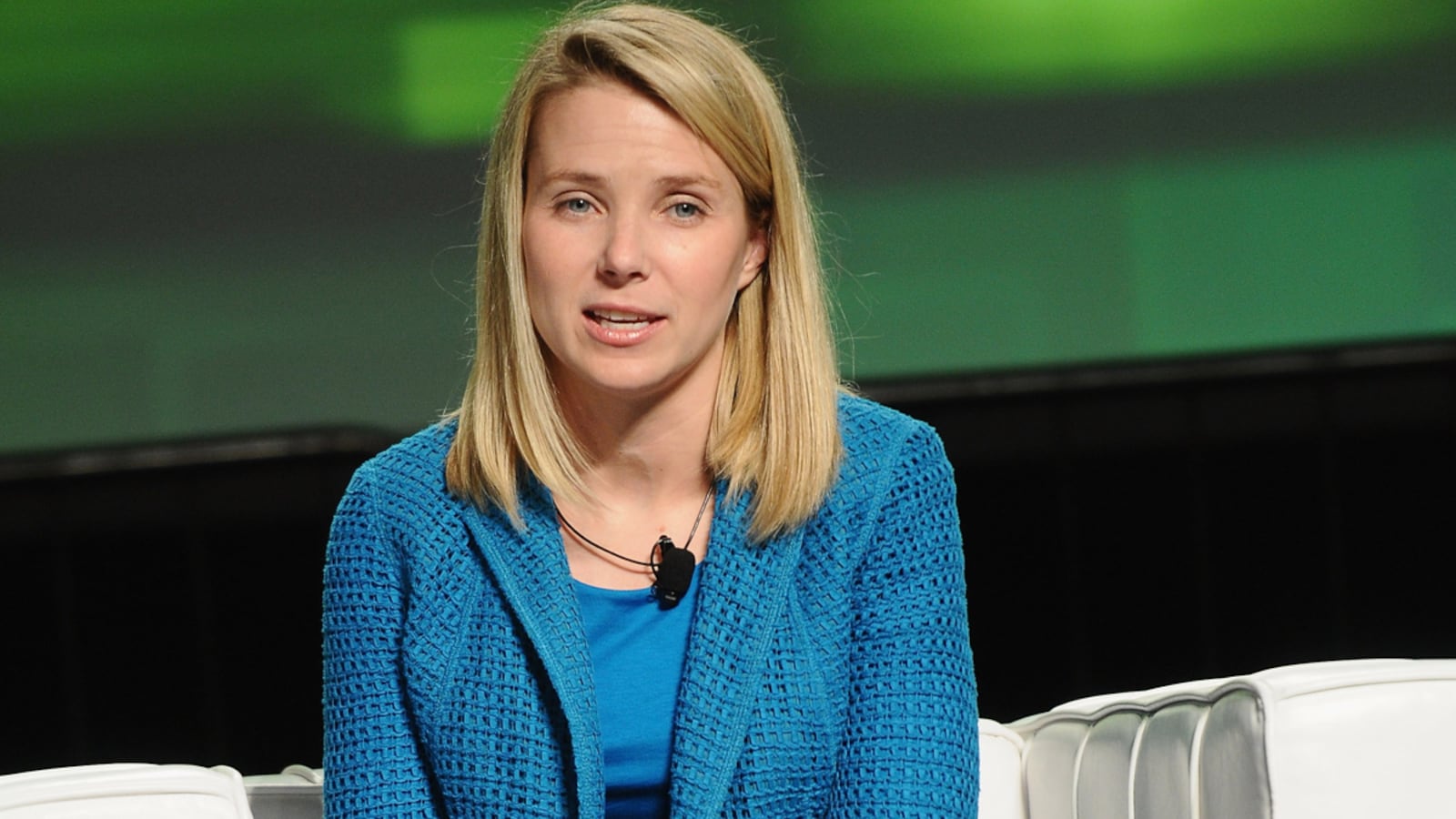Lots of people who are not part of Marissa Mayer’s family, company, or medical team seem to have strong opinions about how much time off the new Yahoo CEO should take after she has her son in October. “My maternity leave will be a few weeks long and I’ll work throughout it,” she told Fortune this week. Cue the widespread disapproval from business pundits and parenting writers alike.
Writing in Forbes, Francine McKenna compared Mayer’s pregnancy to Steve Jobs’s cancer, asking whether Yahoo has a fiduciary duty to disclose details about her health. “As far as we know, mom and baby are healthy, but contingency planning, starting now, should also be in the works,” wrote McKenna. Some mothers, meanwhile, have issued condescending warnings to Mayer about her naiveté. Liz Watson, a senior adviser at the National Women’s Law Center and a “two-time new-baby mommy,” speculated that even with all of Mayer’s advantages, her “working maternity leave might be a train wreck.” Others have castigated her for setting a bad example. “What’s the benefit of a new mom in such a high-profile position if she’s going to act like she doesn’t need maternity leave?” asked The Washington Post’s Janice D’Arcy.
Much of this isn’t about Mayer so much as it is about our society-wide struggle to reconcile women’s growing power with their maternal role. Because women have so little support in combining work and family, everyone is left to do it in her own ad-hoc, jury-rigged way. That leaves lots of people feeling defensive and judgmental. Hence the headline on a Forbes website story about all the mothers carping over Mayer’s plans: “The Pregnant CEO: Should You Hate Marissa Mayer?” Our insecurity, though, isn’t Mayer’s problem. Indeed, if there’s a problem here, it’s how quick we are to second-guess other people’s parenting plans.
“People are trying to figure it out. It’s a new world,” says Ellen Galinsky, president and cofounder of the Families and Work Institute. “It’s hard to accept someone who does it differently than you do, because it may mean that the way you did it wasn’t right, so you get a lot of heartfelt emotion. People look to see examples, and people look to see train wrecks too.”
It’s understandable why lots of us look at Mayer and feel like we don’t measure up—because, in all sorts of ways, we don’t. Even before her new job and her pregnancy were announced, she was a workaholic tech superstar and design genius who looks like a model and runs marathons in her spare time. Almost anyone who evaluates herself by Mayer’s standard is going to feel like a failure. This is not Mayer’s fault, nor is it any reason for her to curtail her ambitions just because she’ll soon be a mother.

The danger lies with the idea that Mayer offers any sort of a template for most working women. It seems entirely possible that, with nannies, night nurses, the ability to telecommute and set her own hours, and a husband with a flexible schedule, Mayer’s postpartum plans will work out fine. We should be far more worried about the huge number of mothers forced to return to work shortly after childbirth with none of those supports.
According to survey data gathered by the Families and Work Institute, 18 percent of mothers of small children returned to work within five weeks of having or adopting a baby. Almost a third are back at work within six weeks. In most cases, it’s a matter of economic necessity. “The people who take the shortest leaves are people who can’t afford to take longer leaves,” says Galinsky. In 2008, only 16 percent of companies offered paid maternity leave, down from 27 percent a decade earlier. As Bryce Covert recently reported in The Nation, many new parents take on debt in order to finance time off. “A quarter of all ‘poverty spells’—falling into poverty for two months or more at a time—begin with the birth of a child,” she wrote.
One hopes that Mayer understands that both she and her situation are somewhat unique. I see why many are concerned about her disavowal of the word “feminist” in an interview with the PBS/AOL series Makers, because it suggests a certain obliviousness to other women’s struggles. Mayer said that although she believes in equal rights and equal capabilities of men and women, she thinks “feminism” has become a “negative word.” “You know, there are amazing opportunities all over the world for women, and I think that there is more good that comes out of positive energy around that than comes out of negative energy,” she said.
If I were one of her employees, I might worry about how that bodes for Yahoo’s willingness to accommodate mothers without Mayer’s resources. I might fear that she’d be like Zoe Cruz, who, until her firing in 2009, seemed poised to become the first female CEO of Morgan Stanley—or, for that matter, any Wall Street firm. A New York magazine profile reported that Cruz always returned to work within a few weeks of giving birth to each of her three children. “When she was in labor with her daughter in 1988, she fielded a call from the trading desk to discuss positions in a particularly volatile market,” wrote Joe Hagan. Apparently she expected other women to behave similarly. “Cruz was not a feminist … She argued against such programs as flex time for women who wanted to have children,” Hagan wrote.
But that’s a problem of policy, not personal example. As a CEO, Mayer will have a responsibly to make it possible for Yahoo employees to combine work and family in a way that makes sense for them. At the same time, she has a right to combine them in whatever way makes sense for her.






